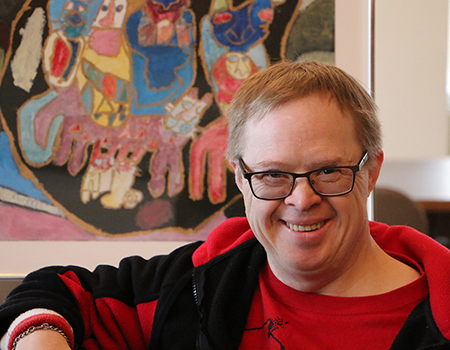More than 400,000 individuals in the United States have Down syndrome, or trisomy 21–a chromosomal condition caused by an extra 21st chromosome. Down syndrome is the most commonly occurring chromosomal condition. Approximately one in every 733 babies is born with Down syndrome each year.
Waisman Down Syndrome Activities
Down Syndrome Clinic
The Waisman Center provides comprehensive clinical care and support for children with disabilities and their families.
Day with the Experts: Down Syndrome
Since 2010, Day with the Experts: Down Syndrome has focused on sharing knowledge about Down syndrome across the life course, from research using stem cells to the latest standards of care.
BioLibrary
The Waisman BioLibrary is a new Waisman Center initiative. The first study from this project is related to Down syndrome. Visit to learn more.
UCEDD
The mission of the Waisman Center, University Center for Excellence in Developmental Disabilities (UCEDD) is to support the full inclusion and self determination of people with developmental disabilities and their families. Autism is a major area of focus.
Children's Resource Center-South
Guiding Wisconsin families of children and youth with special health care needs. We are parents and professionals who can help get answers, find services, connect you to community resources, provide trainings, and support you on your journey.
Studies Recruiting
Down Syndrome Studies Recruiting

BuILD Study (Brain Imaging and Language Development in Infants with Down Syndrome) (Dean)
Recruiting parents of children with Down Syndrome who are between 1 and 24 months old.
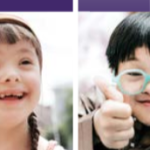
Guanfacine for Hyperactivity in Children with Down Syndrome (Stanley)
Is your child with down syndrome hyperactive, inattentive, or impulsive? If so, you may be interested in this new research study
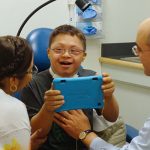
Hypoglossal Nerve Stimulator Study (Stanley)
We are studying new ways to treat obstructive sleep apnea in children and young adults with Down syndrome who have persistent obstructive sleep apnea despite prior tonsillectomy.
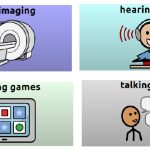
Are you a young adult with Down syndrome looking to make brain waves for science? (Litovsky)
Our Goals: We hope you will be a part of the first study for young adults with Down syndrome to combine: Who can help? Young adults with Down syndrome who are: 18 to 24 years …
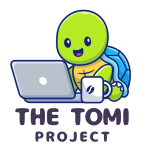
Leveraging Technology to Identify Outcome Measures for Young Children with Down Syndrome (Sterling)
Our study aims to learn more about how language samples collected in the home can be used to measure the language development of children with Down syndrome.
- More Down syndrome posts
Events
Down Syndrome Events
@ 12:00 pm - 1:00 pm
John D. Wiley Conference Center, Room T216
Emanuel DiCicco-Bloom, MD Rutgers University Profile About the Speaker: Emanuel DiCicco-Bloom, MD, Professor at the Department of Neuroscience and Cell Biology from Rutgers University, is a child neurologist who studies basic mechanisms of brain development in rodent …
@ 9:00 am - 10:00 am
Fecha: 26 de febrero Título: Invitados: Promo: Un espacio creado por el Waisman Center, Universidad de Wisconsin-Madison para hablar con científicos y proveedores de salud acerca de discapacidades de desarrollo como autismo y síndrome de Down, …
@ 12:00 pm - 1:00 pm
John D. Wiley Conference Center, Room T216
Kartik Pattabiraman, MD, PhD Yale University Lab Website About the Speaker: Kartik Pattabiraman, MD, PhD, is an assistant professor at the Yale Child Study Center. He completed his MD and PhD at University of California-San …
@ 9:00 am - 11:30 am
Waisman Center
Learn about advances in research and clinical services and hear from a panel of experts—individuals with Down syndrome and family members.
@ 12:00 pm - 1:00 pm
John D. Wiley Conference Center, Room T216
Scott Soderling, PhD Duke University Profile About the Speaker: Scott Soderling, Ph.D., is a George Barth Geller Distinguished Professor of Molecular Biology and Professor of Cell Biology and Neurobiology at Duke University School of Medicine. He …
@ 9:00 am - 10:00 am
Fecha: 26 de marzo Título: Invitados: Promo: Un espacio creado por el Waisman Center, Universidad de Wisconsin-Madison para hablar con científicos y proveedores de salud acerca de discapacidades de desarrollo como autismo y síndrome de Down, …
News
Waisman Down Syndrome News

Early adversity strongly predicts adult mental health challenges in people with Down syndrome, new study finds
A new Waisman study found that adverse childhood experiences (ACEs)—such as abuse, neglect, or exposure to household challenges—can have lasting effects on adults with Down syndrome, including their mental health and ability to cope with life changes. While ACES are known to impact the general population, this research is among the first to show similar—and in some cases heightened—effects in individuals with Down syndrome.
January 15, 2026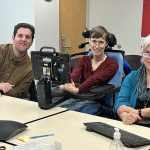
Wisconsin LEND trainees visit state legislators to share their personal stories and educate about the impact of Medicaid on Wisconsinites with disabilities
The Wisconsin LEND Program prepares individuals with disabilities to engage in policy discussions, giving them the tools and confidence to make their voices heard.
July 15, 2025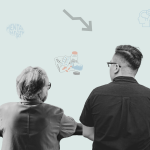
Health trajectory of mothers of children with developmental disabilities shows a ‘wear-and-tear’ effect starting around age 65
Mothers of children with developmental disabilities experience long-term stress, adapting for many years but showing signs of ‘wear-and-tear’ starting around age 65, affecting their physical and mental health.
June 5, 2025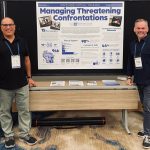
Statewide success: Managing threatening confrontations training enhances disability support for thousands
It focuses on teaching proactive and positive strategies for supporting individuals with disabilities through a broad range of behaviors and escalation levels.
April 8, 2025
New insights into language development: The role of joint attention in kids with Down syndrome and autism
Attention is a key component of learning. Think of how hard it is to learn someone’s name if all you can think about is the eyelash on their cheek. The same can be said for language learning.
March 25, 2025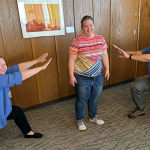
A family’s commitment to Down syndrome research at the Waisman Center spans four decades and counting
When Heather Huismann was in middle school she called the police on her teacher. “He was not teaching me very well,” Heather says.
March 17, 2025- More Posts
Additional Resources
Resources & Services
 Research Participation | 800.965.9205; 608.263.5192; registry@waisman.wisc.edu; Participate in Research
Research Participation | 800.965.9205; 608.263.5192; registry@waisman.wisc.edu; Participate in Research
The Waisman Center’s Research Registry links individuals and families to research projects at the Waisman Center. The Waisman Center maintains a confidential registry of families and individuals who would like to be contacted about upcoming research projects. Enrollment in the Research Registry does not obligate an individual or family to participate in any study.
 Community Outreach for Children with Challenging Behaviors | 608-265-9438; cow.waisman.wisc.edu/ties
Community Outreach for Children with Challenging Behaviors | 608-265-9438; cow.waisman.wisc.edu/ties
Community Training, Intervention and Evaluations Services (TIES) is an outreach program for children and adults with developmental disabilities who present various challenging behaviors, including withdrawal, aggression and self-injury. The mission of Community TIES is to address behavioral, psychological, and emotional needs using therapeutic approaches that insure continued participation in the community. TIES provides counseling, crisis response, psychiatric consultation, parent education and support, and training for personnel and program consultation in local human service agencies. Directed by Josh Lapin, MSW, and funded by Dane County, this program maintains an active caseload of approximately 250 children and adults in Dane County.
 Finding Your Way: Videos for Families | wicii.waisman.wisc.edu/training/fyw-videos/
Finding Your Way: Videos for Families | wicii.waisman.wisc.edu/training/fyw-videos/
Finding Your Way is a video series for families and caregivers of children with intellectual and developmental disabilities. The videos provide information on services and resources for children with disabilities in Wisconsin. Topics include the Birth to Three Program, Children's Long-Term Supports Program (CLTS)/Children's Community Options Program (CCOP), Early Childhood Special Education, Head Start/Early Head Start, Home Visiting Programs, Katie Beckett Medicaid, Outpatient Therapy, and Supplemental Security Income (SSI).
 Moving to Adult Health Care: A 6-Part Toolkit Series for Health Care Transition | https://movingtoadulthealthcare.org/toolkits/
Moving to Adult Health Care: A 6-Part Toolkit Series for Health Care Transition | https://movingtoadulthealthcare.org/toolkits/
These toolkits aim to help you learn and get ready for moving to adult health care and living a healthy adult life. They will give you lots of information and resources to help you during this time of transition. Each toolkit will focus on a different topic about health care transition.
 Wisconsin Wayfinder: Essential Children's Resources | 877-947-2929; dhs.wisconsin.gov/wiscway/
Wisconsin Wayfinder: Essential Children's Resources | 877-947-2929; dhs.wisconsin.gov/wiscway/
Wisconsin Wayfinder supports families of children with delays, disabilities, special health care needs, and mental health conditions. Children’s resource guides are helpers who assist families, caregivers, professionals, and organizations in finding a wide array of supports and services available through the Children’s Resource Network. Their services are free and confidential. Connect with a children's resource guide. Call (877) WiscWay or use our contact form.
 Well Badger Resource Center | 800-642-7837; text: 608-360-9328; help@wellbadger.org; https://www.wellbadger.org/
Well Badger Resource Center | 800-642-7837; text: 608-360-9328; help@wellbadger.org; https://www.wellbadger.org/
When you have questions about health and social services, figuring out where to go when you need help can be overwhelming. We’re here to make it easier. Well Badger Resource Center is your one-stop connection to community, social, health, and government programs — a place to find what you need, when you need it.


